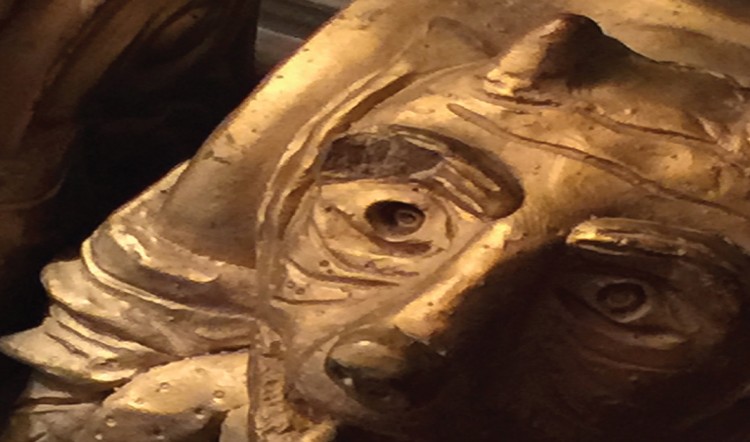Shine On, You Crazy Diamond: High Concepts and Commitment
I’m going to dive right into talking about design without much overture. If I ramble blame the movie I stayed up (and, surprisingly, awake through last night) watching: Europa Report. Who knows? I may well use it as an example. If I do, I’ll steer clear of spoilers and warn you if I enter any such territory in advance. (Okay, there was a little overture, but it’s purposely placed to contextualize things.)
You get a HIGH CONCEPT. You pull it from the air, a synopsis of a show, the muse you keep locked up in your basement, or somewhere else. It doesn’t matter. This is the thing that’s got your creative juices flowing. Your mind is all abuzz with possibility. This conceptual thing is brilliant and beautiful and the gods themselves will weep when they see what you have created. The only thing is, you’ve not created a thing, not yet. You’re in love with the ephemeral, the shadowy unknown. And, to underscore a word I threw in before: POSSIBILITY. It’s that point before the starting off point where you can go anywhere and all things are possible. Want laser tigers riding robot monkeys through the chocolate pudding of space? Sure. Can I play a psychic werebeast who gains his power by eating Chex-Mix? Absolutely. At this stage, everything is up from grabs, and you’re playing in the plastic ball pit. What’s not to like?
There comes a time when you have to get on with the work (or they wonder what you–a full on grown up (at least from all appearances)–are doing in a ball pit and throw you out).
You go to your desk or coffee shop or wherever and log on, black out, jack into the network and your applications/programs/tools/aids/whatever and immediately get distracted because you definitely sat down to see what kind of coffee Taylor Swift likes to drink before a workout or answer your dying need to know what everyone did in those past 6-8-20 hours you were sleeping/living in the real world/sitting/being dragged from a ball pit because you want to be current, timely, relevant. And then you remember you sat down to do some real work and your high concept may already be losing its shine. If it was something worth keeping, it would shine on like a crazy diamond. And it has to at least start shinier, because that’s about as shiny as it’s ever gonna get.
Yes. You can buff it, polish it, whatever, but at it’s core it has to be a crazy diamond. It has to be something you want to spend a long time with, because you’re making a commitment to an idea, a concept, and, when so doing, it gains weight and gravity and shimmers and shines and becomes concrete. As it makes this transition, it is a beautiful, flawed thing, as no thing in this world is without imperfection, and it is your beautiful flawed thing. Yet it has a glimmering glow, as you can hold on to (false) hope. By not fulling transitioning the idea over, by keeping it in flux, letting it exist in an unstable state, as though caught in a transporter accident, it can live forever with one foot in this realm and the other foot in the unknown. That way lies cowardice and sadness and will leave you with a punch in the gut far worse than finishing a thing. Or working on the thing. To finish something, to labor on something, is to learn something, whether it is how to improve your writing skills, your design skills, or to simply better understand a thing or to learn that thing or experience is not for you. I have learned a lot about things in which I had an interest. I have learned to govern my passion. I have learned to commit to understanding. And I have learned to avoid paralysis by pushing myself to move ever onward. The world is a scary place. The media has publicly reminded the world for a moment that the internet is still a scary place. And it always has been, the access to the madness was just more obscure and shadowed in the past before it became a part and parcel of the real world. The line blurs. There is only one real world. We are all of us impacted by aspects of the other (even as elves quietly influenced others from beyond the fields we know).
The takeaway, the upshot, the central, mewling focus of all this: you want to write about something? You gotta love it. You gonna write a big book about a thing? You gotta love it. If you don’t love it. It will not be a passion product. It will reflect in your work. And, if you’re a professional, you gotta love something about it more than just the money. (And, yes, money is good and important and a necessary thing). You have to think about how your association(s) can impact something even more valuable in the long game than money, and that’s your reputation. Find at least something about a project you like before you sign up, be it the subject matter, the person(s) involved in the project, or even the intellectual challenge to bring something new to a tried and true concept. All of these things work.
Now get out there and love something.
Until next time, I bid you, dear reader, adieu.
Best,
Sean
P.S. I noticed I violated Chekov’s rule about guns. Allusions to Europa Report never really got off the ground. I think that kinda sums up my impression of the movie. The concept was something you could see they loved, but didn’t execute as well as they could. Still they did something, so I applaud that. We’ll talk about execution soon enough.
